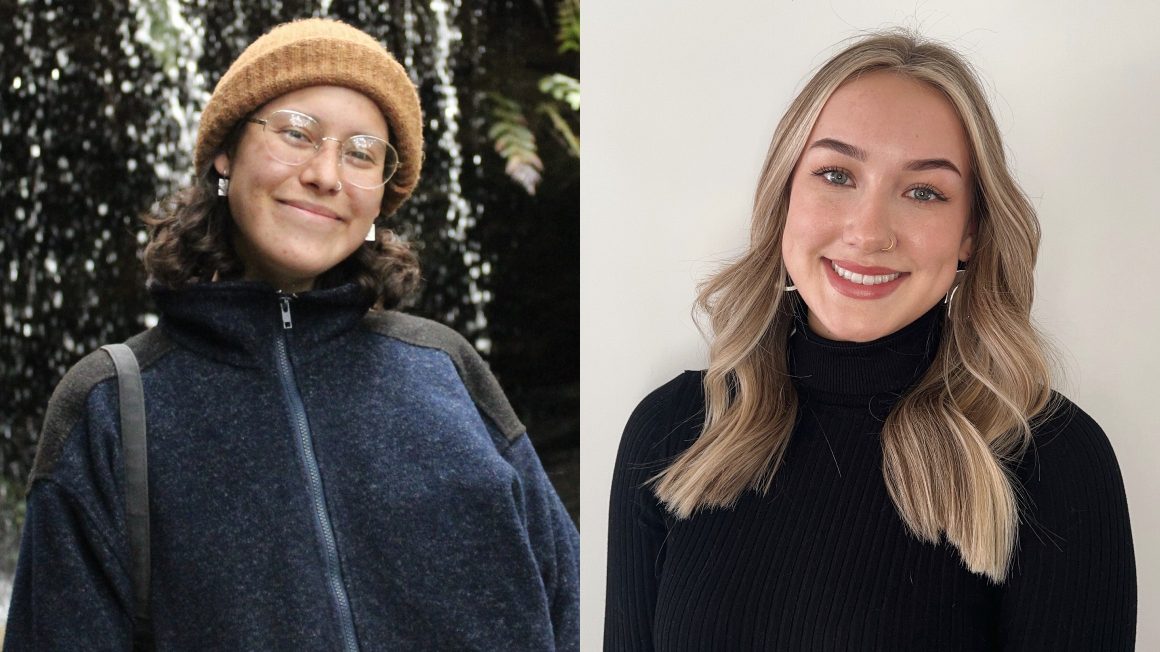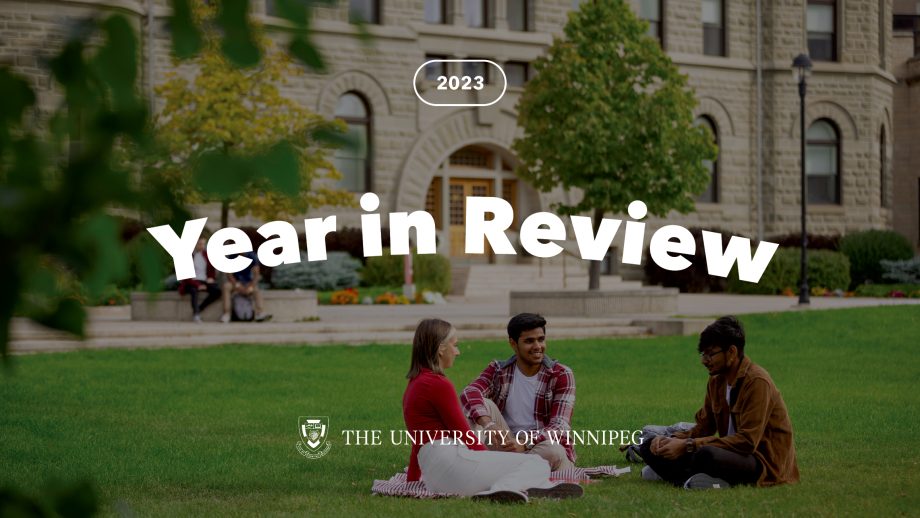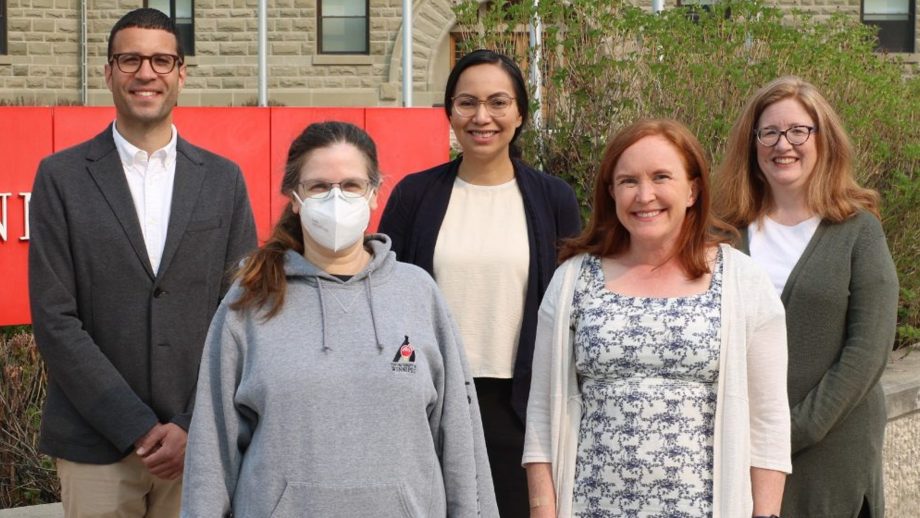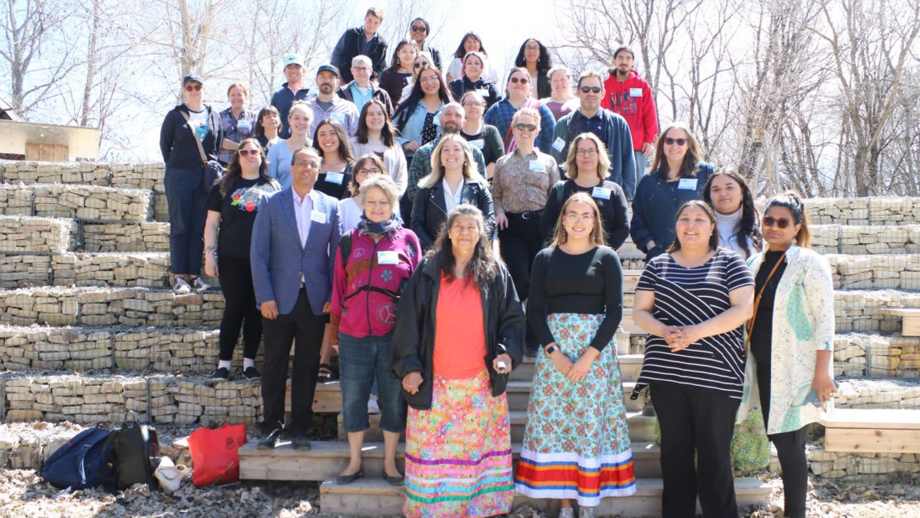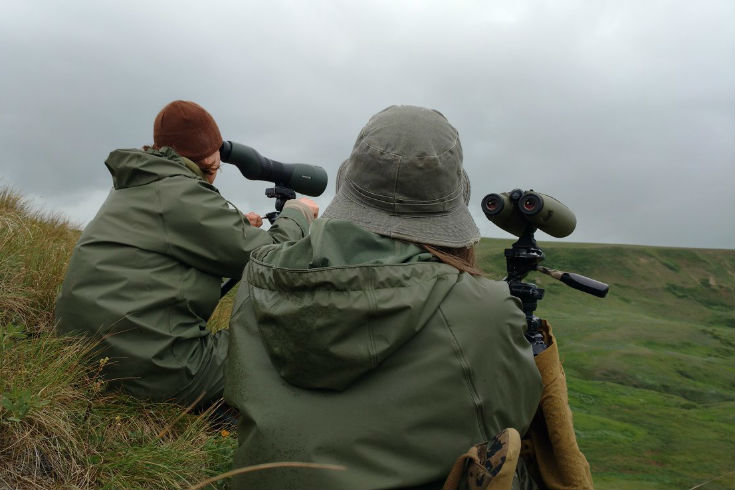Unique research opportunities, academic mentorship, and the chance to make new connections: for students entering the Indigenous Summer Scholars Program (ISSP) at The University of Winnipeg, there are myriad reasons for excitement as their time in the program approaches.
Providing this type of programming for undergraduate students, we are sharing with them opportunities for future work and what is possible.
Laura Forsythe
Hosted by UWinnipeg’s Faculty of Graduate Studies and celebrating its Opening Ceremony on May 4 at the Wiigiwaam at the Forks, the ISSP is a 12-week program inviting senior undergraduate students and recent graduates who identify as Indigenous to explore the possibilities of graduate studies.
The goal is to strengthen pathways for Indigenous students to move into advanced study, to affirm the significance and centrality of Indigenous peoples, ways of knowing, and experiences at the University, and to create a network of Indigenous scholars and allies on campus.
For Erin Sinclair and Dominique Carriere, building a sense of community, as well as supporting and receiving support from their peers, were among the draws of the ISSP.
“Even now, with Zoom, it’s hard to meet people in your class,” said Carriere, a second-year International Development Studies major. “So to have this space and build those connections with this team that’s going through the same experiences, I think it’s going to be a really special experience to do all of this with the same group of people.”
Ready to research
As part of their respective projects, Sinclair and Carriere will learn from experienced mentors whose research projects they will be joining.
In the case of Sinclair, a fifth-year Psychology major, she will join UWinnipeg’s Institute of Urban Studies director and associate professor of Geography Dr. Gina Sylvestre’s Housing Insecurity and Older Women project. Carriere will support Laura Forsythe from UWinnipeg’s Faculty of Education in the execution of the Mawachihitotaak (Let’s Get Together) Métis Symposium, which will take place from May 3-6 in association with the Winnipeg Art Gallery and Qaumajuq. Carriere will then assist in documenting the event as part of Forsythe’s case study on the importance of creating Métis-specific academic spaces.
As the researchers heading up the projects, Sylvestre and Forsythe aim to guide their mentees through the research process. Forsythe explained how embracing Wahkohtowin – the Cree and Métis philosophy of interconnectedness and responsibility to our kinship ties – is an important piece of what she hopes to bring to the ISSP as a first-time participant.
“It’s really important to us on the research team that Dominique gets exposed to many different things and not just, ‘OK, you have to aggregate the data,’” said Forsythe. “That only shows one piece, one thing. It is our hope – and I have expressed to Dominque – that once we’re finished and getting published, she’ll be listed as one of the co-authors because she’ll be a part of that and a part of the research.”
What works well in service of the program, as well, is the summer timeline, said Sylvestre. Generally, a student working with a researcher throughout fall and winter terms could have to contend with a steady class schedule. That isn’t the case in ISSP.
“That’s why this program is really good, because it’s in the summer when we’re not teaching and more focused on our research,” Sylvestre said. “There’s the ability to get them involved in the research for that three months of the program.”
Broadening horizons
While a clear connection can be drawn between Carriere’s focus and Forsythe’s project, the ISSP also provides students the opportunity to explore new fields of study. Such is the situation for Sinclair, as her studies and Sylvestre’s geography expertise don’t particularly align.
However, the skills learned from one research project can be applicable across disciplines. While Sylvestre’s project will introduce Sinclair to geographical concepts with which she may be unfamiliar, the foundational skills can ultimately provide the greatest benefit.
“She’ll learn about searching for literature, determining what is the best, and so on,” said Sylvestre. “Those are really good skills to be learning going into her fourth year. As an undergrad student, to get that rather than just doing research projects and assignments for classes – this way you’re actually working with a team and can learn from them.”
And in giving more Indigenous students the opportunity to have such experiences, it creates an all-important understanding of where their educational journey can take them.
“We have first-generation students coming to the institution who are unaware of programs or funding available to them or are unaware of how to navigate this system to be who (they) want to be,” said Forsythe. “Providing this type of programming for undergraduate students, we are sharing with them opportunities for future work and what is possible. That is one thing that this types of programming is presenting to first-generation students: the possible. And that’s very important.”
For more information on the Indigenous Summer Student Program, and to find out how you can get involved, visit the ISSP website or contact Mekala Wickramasinghe at mek.wickramasinghe@uwinnipeg.ca.

